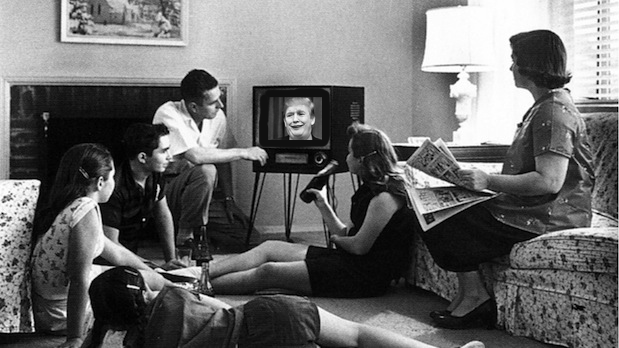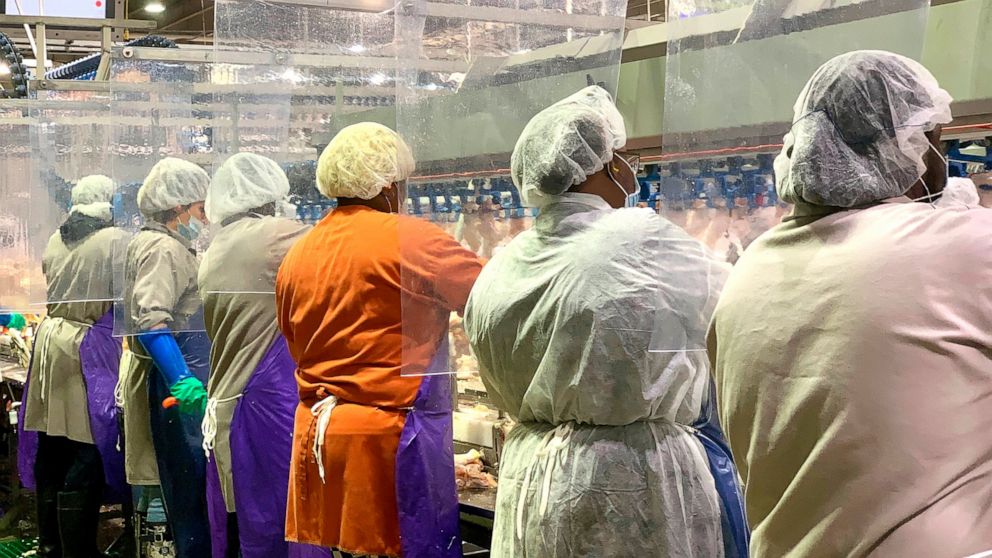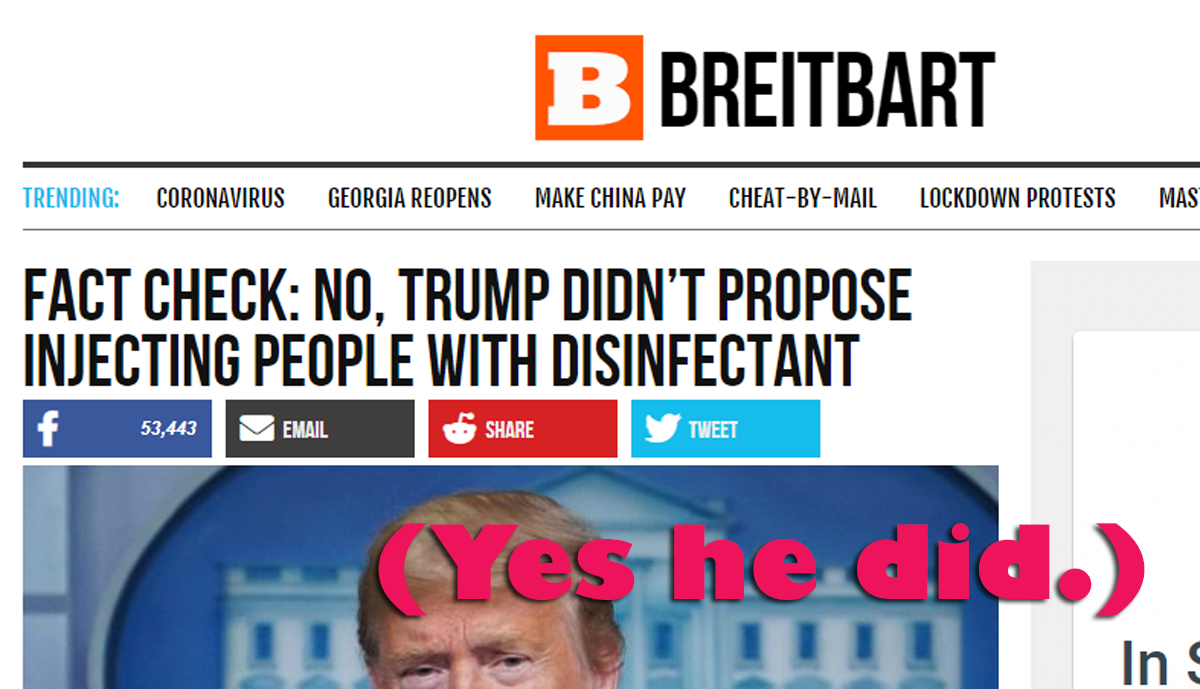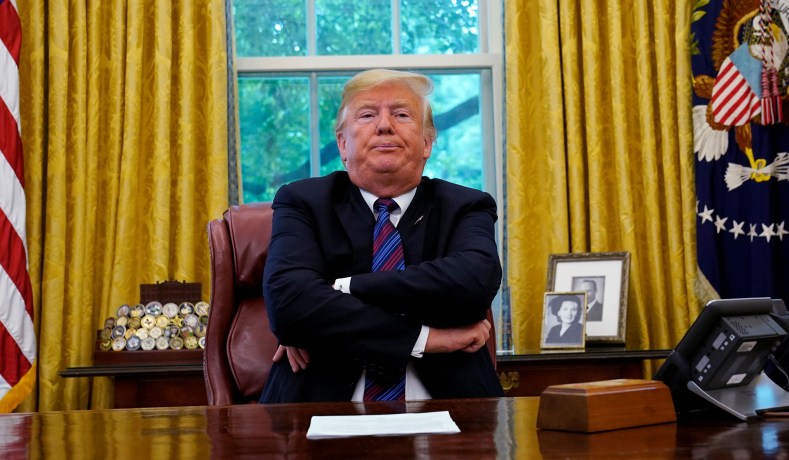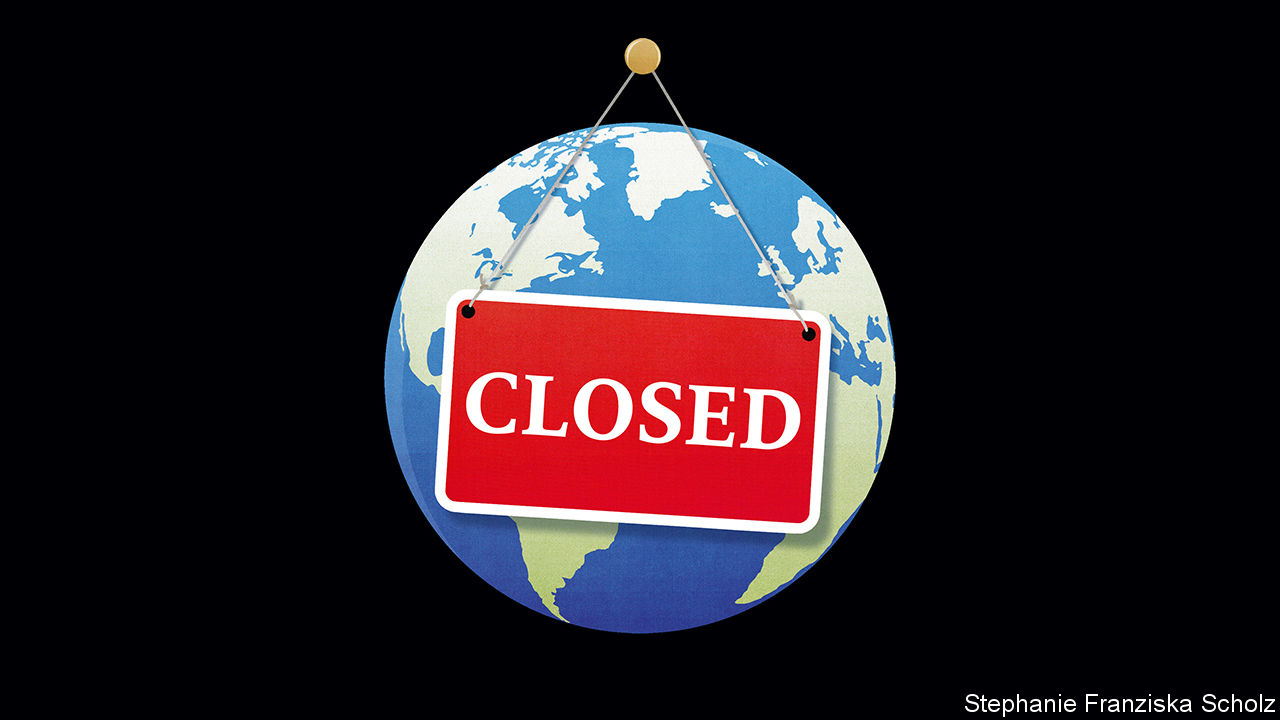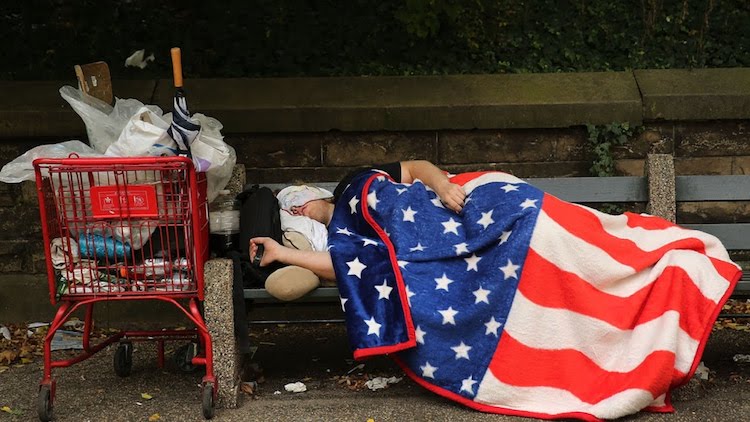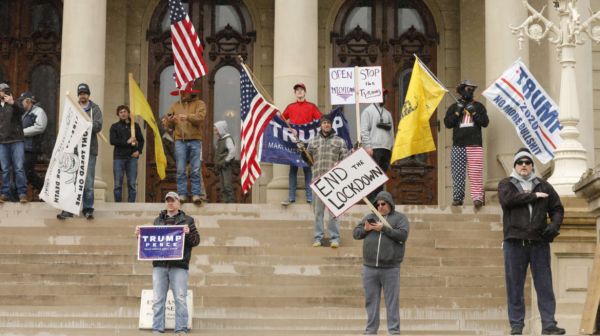Trump spent the past several hours rage-tweeting. He is angered by the New York Times story that portrayed him as a lazy sot who spends most of his day watching television to see what people are saying about him, instead of doing his job. (Obviously that’s wrong; he also spends a lot of time rage tweeting instead of doing his job.) He is angered that the allegation that Vladimir Putin helped make him President refuses to die. He still hates the news media with a white-hot passion. He also posted an obvious deepfake video of Joe Biden making faces.
The tweets were full of the usual mispellings and odd capitalizations as well as weird misstatements about reporters returning their “Noble prizes.” I’d say Trump was losing it, but I’m not sure he ever had it to begin with.
A lot of these tweets were later deleted; here is a selection, preserved for posterity.
Here ya go. pic.twitter.com/oXyQIvivT3
— David Weissman (@davidmweissman) April 27, 2020
He’s obviously still stung by the firestorm of ridicule inspired by the “disinfectant” briefing. And he wants you to know that he is too doing a good job responding to the pandemic. Not a bad job, like the news media says. Aaron Blake, at WaPo:
The fusillade began later Saturday night, when Trump began reasserting his false claim that the United States has tested more people than have other countries combined.
“Just passed 5 Million Tests, far more than any other country in the world,” Trump said. “In fact, more than all other major countries combined.”
“We have now Tested more than 5 Million People,” he added Sunday morning. “That is more than any other country in the World, and even more than all major countries combined!” …
… Trump can say this as many times as he wants, but it won’t make it true.
As an Associated Press fact check showed, “Together, just three ‘major countries’ alone — Russia, Germany and Italy — have tested more people than the U.S.” Those three countries account for about 6.5 million tests.
(The claim of superior U.S. testing by using raw numbers is also misleading; that’s because more than 30 countries have tested more people per capita.)
Today he’s been cranking out gems like this:
Why should the people and taxpayers of America be bailing out poorly run states (like Illinois, as example) and cities, in all cases Democrat run and managed, when most of the other states are not looking for bailout help? I am open to discussing anything, but just asking?
— Donald J. Trump (@realDonaldTrump) April 27, 2020
And this:
Blame the Democrats for any “lateness” in your Enhanced Unemployment Insurance. I wanted the money to be paid directly, they insisted it be paid by states for distribution. I told them this would happen, especially with many states which have old computers.
— Donald J. Trump (@realDonaldTrump) April 27, 2020
Since unemployment benefits are administered by the states, I’m not sure how sending checks directly from some undesignated federal source would work. And it’s not like the feds have been all that efficient at getting checks sent, either.
See also Paul Waldman, Please, Mr. President: No more briefings. America can’t take it.
The word is that the coronavirus task force will no longer be holding daily briefings, with or without Trump. Maybe they will hold occasional hearings; maybe they will be muzzled altogether. The White House is shifting its messaging away from dealing with the pandemic to rah rah economy! “Expect to see a pivot from the White House in the days ahead, focusing on the economy and a more hopeful, forward-looking message,” a White House official said.
It appears there’s nothing on the agenda about addressing supply chain disruptions or the continued shortage of medical supplies and testing components. Talk of the almighty Defense Production Act seems to have faded away, since it’s clear Trump isn’t going to use it. I doubt that he understands how to use it. He seems to have thought he only needed to sign the thing and it would automatically just fix production, like a wind-up machine.
Instead, the focus will be on putting on a new kind of Trump theater, so that Trump can look like he’s doing something, but it will be focused on the economy rather than on the pandemic. The theory must be that he’s better at faking expertise on the economy than on medicine. And how did America come to this?
There’s a column by Fintan O’Toole in the Irish Times that’s making the rounds on social media. It’s behind a subscription firewall, so it’s being copied and pasted. Here’s a link. Please do read the whole thing. It begins this way:
Over more than two centuries, the United States has stirred a very wide range of feelings in the rest of the world: love and hatred, fear and hope, envy and contempt, awe and anger. But there is one emotion that has never been directed towards the US until now: pity.
However bad things are for most other rich democracies, it is hard not to feel sorry for Americans. Most of them did not vote for Donald Trump in 2016. Yet they are locked down with a malignant narcissist who, instead of protecting his people from Covid-19, has amplified its lethality. The country Trump promised to make great again has never in its history seemed so pitiful.
And it ends this way.
As things get worse, he will pump more hatred and falsehood, more death-wish defiance of reason and decency, into the groundwater. If a new administration succeeds him in 2021, it will have to clean up the toxic dump he leaves behind. If he is re-elected, toxicity will have become the lifeblood of American politics.
Either way, it will be a long time before the rest of the world can imagine America being great again.
The U.S. president is no longer “the leader of the free world,” and there is no way future presidents will reclaim the title. Eight years of George W. Bush was bad enough; during my 2005 trip to England and Wales, people kept asking me, “You do know your president is an idiot, don’t you?” The election of Barack Obama redeemed us in the eyes of the “free world” as having come to our senses. But then came Trump. They aren’t going to cut us any slack after Trump. If Trump is re-elected, we’ll be persona non grata to the world for the rest of this century. We pretty much are already.
The saddest thing is that We, the people have been rendered helpless to do anything about Trump as long as he is in office. What we’re facing with Trump is precisely the situation for which the 25th Amendment was designed. And the impeachment hearings and trial proved that Trump abused the power of his office and should have been removed from it. But we can do nothing because the officials charged with protecting the Constitution and the national interest are instead invested in protecting Trump. Our last hope is the election.
Daniel O’Hehir (what is it about the Irish and doom?):
What the coronavirus has shown us, if we’re willing to see it, is America as an imperial power in steep decline, revealed before the world as a weak, divided and ineffectual nation — albeit one with the greatest military force in world history. To put it in the mildest possible terms, that’s a dangerous combination; it might better be described as profoundly terrifying. … This pandemic has stripped away much of America’s pompous, self-aggrandizing façade and has made many aspects of the nation’s decline, and its fast-decaying claim to world leadership, even more obvious than they already were. …
… We need to stop pretending that America after the coronavirus, and after the Trump presidency, will be the same kind of nation it was before, with the same role of more-or-less unquestioned global dominance. We have deluded ourselves far too long on that front already. There is no making America great again, and it’s time to move past that. But there’s a real chance to make a better future for this country and the world.
So we end with a little bit of hope. But it hangs by a hair.
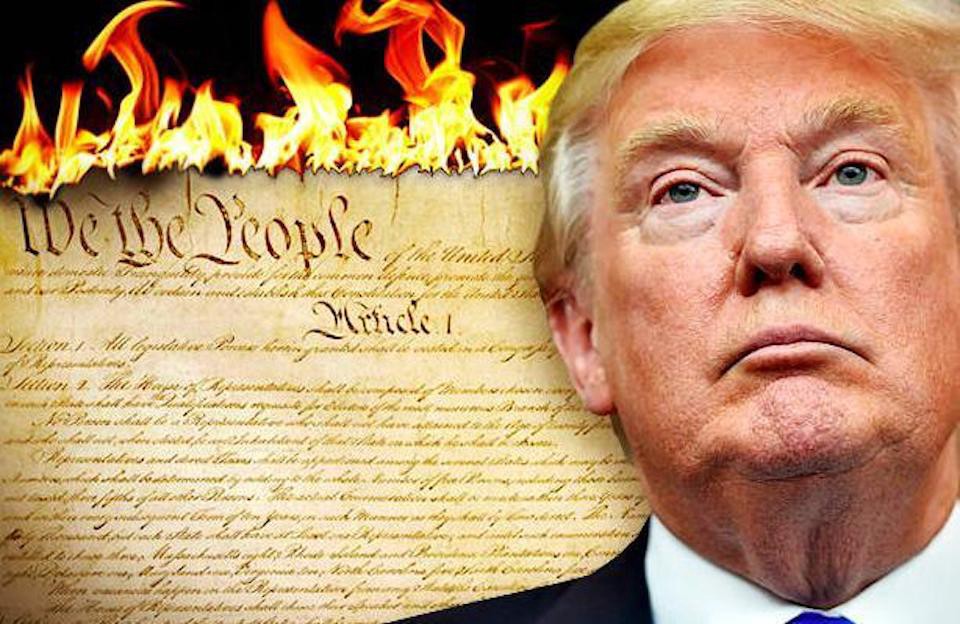
(Credit: www.dailykos.com)

